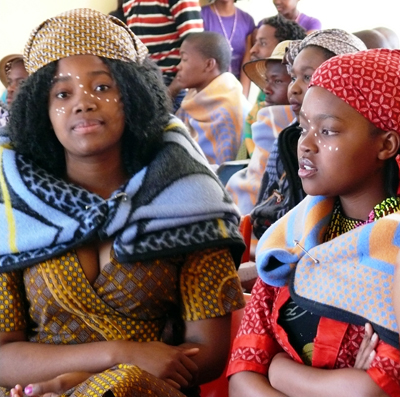Latest News Archive
Please select Category, Year, and then Month to display items
![]()
After South Africa’s battle with the record-breaking drought of 2015, Prof Andries Jordaan from our Disaster Management Training and Education Centre for Africa(DiMTEC) saw room for improvement in dealing with this kind of disaster.
Drought impact
Commercial farmers who are usually net exporters of food crops and communal farmers who own the bulk of the country’s livestock, were all hit hard in 2015. Most of the latter had no resources to spare as the drought progressed. The concern about the drought’s impact on the country’s food production and availability resulted in a joint goal of preventing food scarcity during future droughts.
Prof Jordaan’s visit to the National Drought Mitigation Center (NDMC) in Lincoln, Nebraska, in the US, several years ago prepared him to better equip communities in South Africa to deal with drought situations. “I recognised that in spite of the impact DiMTEC has been able to make on disaster preparedness, a gap remained in disaster response in South Africa.”
Sharing knowledge
In August this year Prof Jordaan again visited the NDMC. This time he requested a few key players in South Africa’s agriculture and disaster response communities to join him. With him were Janse Rabie, head of Natural Resources at AgriSA, a nonprofit organisation that functions as an interface between the government and about 28 000 South Africa farmers, and Moses Musiwale Khangale, director of Fire Services for the South African Ministry of Cooperative Governance and Traditional Affairs.
The South African delegation met with and learnt from climatologists, geospatial technologists, and outreach and planning analysts.
Faculty of Education showcase cultural diversity
2013-09-18
 |
Future teachers displaying the cultural diversity of South Africa.
18 September 2013
Photo: Thabo Kessah |
Education students at the Qwaqwa Campus welcomed Heritage month in style when they showcased their various cultural backgrounds as part of their curriculum to qualify as professional teachers.
“To qualify as professional teachers, students need to have three informal certificates – culture, first aid and sports,” said Moeketsi Dlamini, Professional Officer: Teaching Practice.
“Teaching is not only about the content in the classroom; it also involves understanding of physical, social and cultural diversity. The Faculty of Education intends to develop teachers who will encourage their learners to take part in extramural activities. It is expected that students will implement these activities at the schools where they will be employed,” Dlamini said.